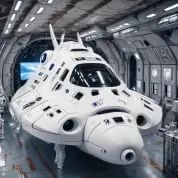
The Future of Space Exploration: Bold Missions and New Frontiers
As we stand on the cusp of a new era in space exploration, the excitement and curiosity surrounding what lies beyond our planet have never been more palpable. The advancements in technology and the increasing involvement of private companies are driving a renaissance in space travel, reminiscent of the fervor during the Apollo missions. In this blog post, we will delve into the future of space exploration, examining recent achievements, upcoming missions, and the innovative technologies propelling us toward new frontiers.


















